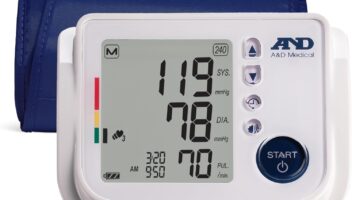Understanding Panic Attack vs. Anxiety Attack: Clear Insights for Peace of Mind 🧘
Are you feeling overwhelmed by sudden bouts of intense fear or worry? Not sure if it’s a panic attack or an anxiety attack? You’re not alone, and we’re here to help you navigate through it.
What Exactly is a Panic Attack?
A panic attack is a sudden onset of intense fear or discomfort that peaks within minutes. It can come out of nowhere and can be incredibly overwhelming. Symptoms often include:
- Rapid heartbeat or palpitations
- Sweating or chills
- Shortness of breath or a feeling of suffocation
- Chest pain or discomfort
- Nausea or upset stomach
- Feeling dizzy, lightheaded, or faint
- Fear of losing control or "going crazy"
I recall once having a panic attack in a crowded subway. My heart raced as if it were trying to leave my chest, and I felt a wave of impending doom. Knowing what was happening would have made all the difference.
Understanding Anxiety Attack
An anxiety attack is a heightened period of worry, fear, or nervousness. Unlike panic attacks, anxiety attacks often build up over time and are typically related to stressors or concerns about something specific. Symptoms may include:
- Excessive worry about everyday situations
- Irritability or restlessness
- Muscle tension
- Difficulty concentrating
- Sleep disturbances
- Increased heartbeat
Imagine feeling constantly on edge before a big presentation; those knots in your stomach and constant worry exemplify an anxiety attack. It’s more prolonged and usually tied to specific worries.
Key Differences Between Panic Attack and Anxiety Attack
Understanding the distinction between panic attacks and anxiety attacks isn’t just about semantics. Knowing the difference can guide you to appropriate remedies or treatments. Here are some key differences:
Onset and Duration
- Panic Attack: Sudden and intense, peaks within minutes.
- Anxiety Attack: Gradual build-up and can last for hours.
Symptoms
- Panic Attack: Physical symptoms like rapid heartbeats and chest pain.
- Anxiety Attack: Emotional symptoms like excessive worry and irritability.
Triggers
- Panic Attack: May occur without any obvious trigger.
- Anxiety Attack: Usually triggered by stressors or particular worries.
Frequency
- Panic Attack: Can be rare or frequent, depending on the individual.
- Anxiety Attack: Often linked to ongoing stress and might be more frequent.
Why You Should Consider Online Therapy 🌐
Feel like you’re facing these challenges alone? Online therapy can offer a valuable lifeline. With the convenience of connecting from anywhere, online therapy allows you to get the help you need without the stress of travel. Here are some benefits:
- Convenience: Therapy sessions from the comfort of your home
- Flexibility: Easy scheduling to fit your lifestyle
- Accessibility: Access to a wide range of specialists
- Anonymity: Added layer of privacy and comfort
Take the first step towards managing your panic attacks effectively. Start your online therapy journey today and experience the benefits for yourself! 🌟
Personal Anecdotes: A Ray of Hope
When I first experienced panic attacks, I felt isolated and helpless. The unpredictability was the worst part. However, after seeking therapy, I learned grounding techniques and ways to manage my emotions. Understanding triggered my path to recovery — learning the difference between a panic attack and an anxiety attack was revolutionary for me.
FAQs: Let’s Address Common Concerns
1. Can panic attacks lead to other mental health issues?
Yes, untreated panic attacks can escalate into other mental health issues like depression, making it crucial to seek assistance early.
2. Can lifestyle changes help manage these attacks?
Absolutely! Incorporating mindfulness, regular exercise, and adequate sleep can significantly reduce the frequency and severity of both panic and anxiety attacks.
3. Is medication necessary for controlling these attacks?
Medication can be helpful for some but is not the only solution. Many find relief with therapy, lifestyle changes, or a combination of both.
4. How can I help someone experiencing a panic attack?
Remain calm, offer reassurance, and encourage them to breathe slowly. It’s also important to avoid minimizing their experience.
Final Thoughts
Living with panic or anxiety attacks can be incredibly challenging, but understanding the differences and seeking the right help can make a huge difference. Remember, you don’t have to go through it alone. Online therapy is a wonderful option that provides accessibility, flexibility, and convenience to help you regain control over your life.
Take a proactive step towards managing your panic attacks and experience the benefits of professional guidance. Explore our online therapy options here and embark on your journey to a healthier, happier you. 🌻
Seek help, stay hopeful, and always remember: you are not alone. 💪💚
Disclosure:
Hospitals.net is a participant in the Amazon Services LLC Associates Program, an affiliate advertising program designed to provide a means for sites to earn advertising fees by advertising and linking to Amazon.com, .ca, .co.uk, etc.
AI Disclaimer:
Hospitals.net uses artificial intelligence (AI) tools to assist in gathering and summarizing product information, including reviews and other relevant data for Amazon products and services. While we strive to ensure the accuracy of the information provided, AI-generated content may not always reflect the most up-to-date or accurate details. The information on our site should not be considered professional advice, and users are encouraged to verify any product details directly with Amazon or other official sources before making a purchase.
We do not guarantee the completeness or accuracy of the AI-generated content and are not liable for any discrepancies or errors. Any reliance on the information provided is at the user’s own risk. By using this site, you acknowledge that product availability, pricing, and other details may change over time, and Hospitals.net is not responsible for these changes.
Health Disclaimer:
The health products and information provided on Hospitals.net are for informational purposes only and are not intended to substitute professional medical advice, diagnosis, or treatment. Always consult a qualified healthcare provider or medical professional before using any health products or following any advice you find on this site. The content on Hospitals.net, including product recommendations and reviews, is not a substitute for individualized care from a healthcare provider.
We make no warranties or representations regarding the effectiveness, quality, or safety of the products listed on our site. Any use of these products is solely at your own risk. Hospitals.net is not liable for any harm, injury, or adverse effects that may result from the use or misuse of the health products or information provided.
Please read all product labels, warnings, and directions provided by the manufacturer before using any product. If you have any questions about a product or its suitability for your condition, we recommend contacting the manufacturer directly or consulting a healthcare professional.
If you have any concerns regarding the accuracy of the information on this site, please contact us for further clarification.



